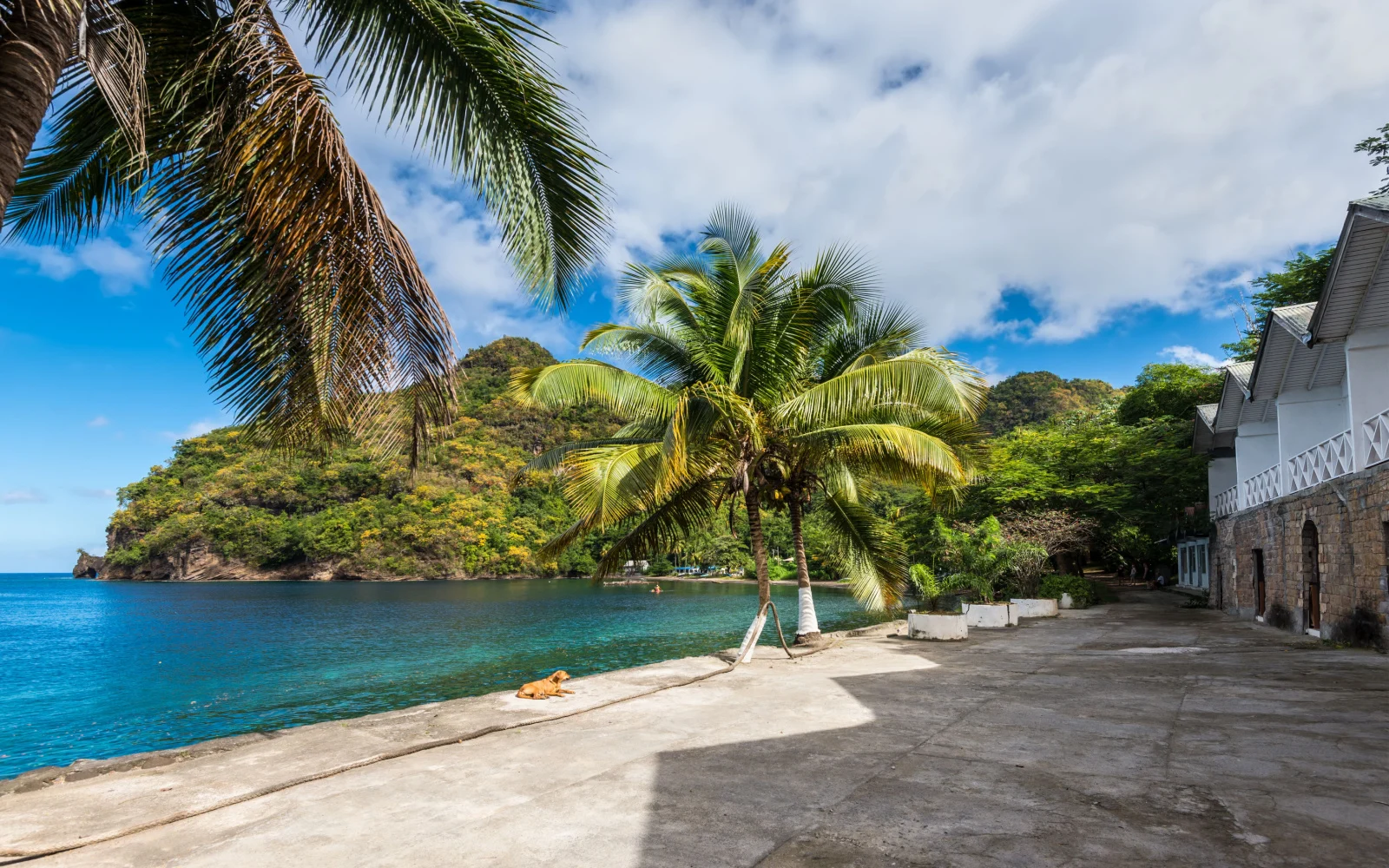Saint Vincent is a hidden gem of the Caribbean. Only about 390,000 people visit the small island country each year. Visitors to the island are rewarded with pristine beaches and beautiful nature unspoiled by mass tourism.
Check out the smaller islands surrounding Saint Vincent, such as the gorgeous Tobago Cays. If you fancy some adventure, hike La Soufrière Volcano, an active volcano on the island.
For a taste of local life, drive along the Leeward Highway Scenic Drive, which takes you along the west coast through historic sites, beautiful views, and small villages.
There is so much to see and do in Saint Vincent and the Grenadines that it is tempting to book a trip to this small Caribbean island as soon as possible.
However, before booking a trip to any new destination, you should always look into practical concerns such as safety first. But don’t worry — our travel experts have done the hard work for you.
We put together this travel guide to help you figure out how to travel to Saint Vincent safely. Keep reading for more details, including precautions you may need to take; let us be your guide!
Is Saint Vincent Safe to Visit in 2026?
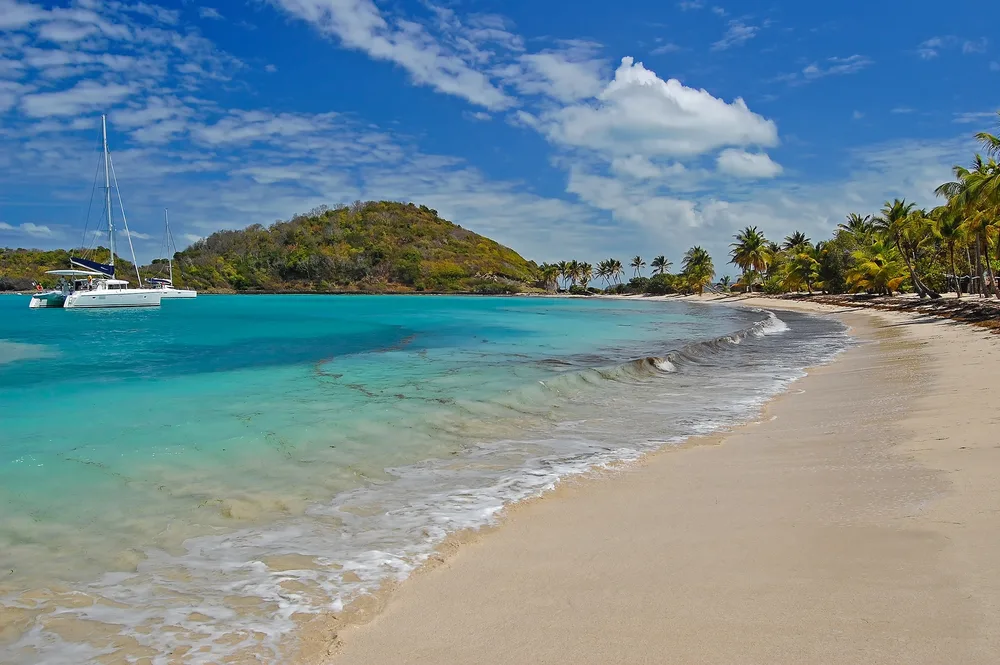
Pawel Kazmierczak/Shutterstock
Yes. Saint Vincent is a safe place to visit! Although crime is present, most levels of crime are low to moderate.
With a few precautions against crime and natural disasters, your trip to Saint Vincent should be completely hassle-free. A good place to start researching the safety of any country is foreign travel advisories.
You can look at advisories from your own government and a few others to get a feeling for what they say. If most countries have a country under a low-level travel advisory, it’s a safe bet that it’s also safe to visit.
The travel advisories for Saint Vincent are uniform in their assessment that this island is very safe to visit. The United States puts Saint Vincent under a Level One travel advisory, the lowest possible level.
U.S. citizens just need to exercise normal travel precautions while in town. Other countries echo this travel advice. Canada also gives its citizens the green light to travel to Saint Vincent. Like any other place, Saint Vincent has its problems.
There is some crime on the island. Common crime incidents include:
- Pickpocketing
- Purse snatching
- Theft from accommodation
- Theft from boats
- Muggings
- Robbery
- Assault
Most incidents affecting tourists are instances of petty theft, but there have been violent crimes targeting foreigners before. It’s always good to take basic precautions to protect your personal safety.
For more reassurance, all you need to do is take a look at the typical clientele of Saint Vincent. Many small islands near Saint Vincent, such as Mustique, are popular destinations for the rich and famous.
These are people who are unlikely to risk traveling to places where they will get robbed, so you will probably be safe (also, you know that thieves are more likely to have more lucrative targets than you).
Besides researching crime, it’s a good idea to read up on the risk of natural disasters. Like almost all other Caribbean islands, Saint Vincent is vulnerable to hurricanes.
While it is not among the hardest hit, Saint Vincent is still within the hurricane belt and receives several hurricanes or tropical storms a year.
The Caribbean hurricane season lasts from June to November, with storms intensifying around August and September. Avoid traveling to Saint Vincent during this time. If you do, monitor local news closely and follow any local emergency alerts.
Besides hurricanes, residents and visitors of Saint Vincent also have to worry about volcanic eruptions. The local volcano, La Soufrière Volcano, is an active volcano that erupts occasionally.
In April 2021, the volcano erupted, displacing thousands of people, although thankfully nobody was killed.
Scientists and government officials closely monitor the volcano and give advance warnings whenever there is an increase in seismic activity. Monitor those alerts closely and cancel your trip if you notice an uptick in volcanic activity.
Crime in Saint Vincent
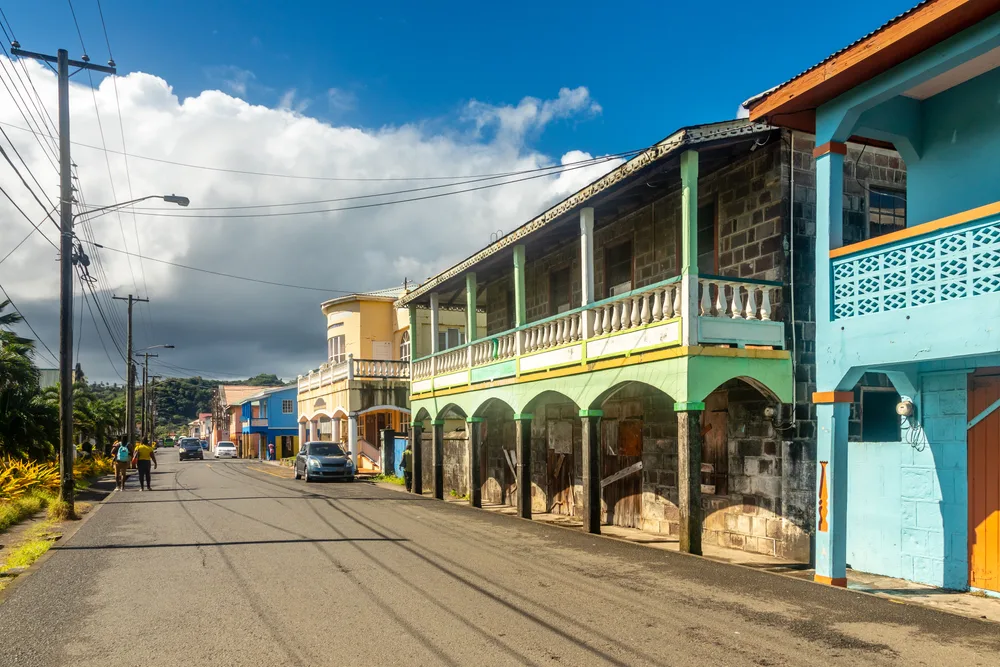
Vadim_N/Shutterstock
Crime is often the main concern for travelers abroad, as nobody wants to be the victim of a crime in a foreign country. This is particularly true in regions where there is a stereotype of high crime levels, of which the Caribbean unfortunately is one.
However, Saint Vincent doesn’t fit the stereotype of the region. It is one of the safest Caribbean islands to visit, with a low crime rate.
Although crime incidents occur, the crime problem is not severe. The overall crime rate according to Numbeo is 37.50 out of 100, which is a low value on the site’s crime index.
However, respondents reported varying levels of concern about different crimes. While people are not concerned about vehicle thefts, muggings, or violent crime, they have moderate concerns about break-ins, petty theft, and corruption.
According to locals responding to a Numbeo survey, there are high levels of drug abuse on the island. Within the overall crime statistics, the level of violent crime is very concerning.
The homicide rate in Saint Vincent is a whopping 30.7 cases per 100,000 people as of 2021. Although the homicide rate tends to fluctuate on the island, it is often on the high side. Local news outlets report that the homicide rate is rising.
In 2022, the country experienced 42 homicides, which is a high number for a place where the population is only 104,332 people. There are a few factors contributing to the high homicide rate.
Local officials point to increasing rates in gun ownership, particularly among young men. Many violent crimes are connected to organized crime, particularly the cocaine trade (according to a UN report, Saint Vincent is a prime transit point for cocaine).
Unfortunately, many homicides are also linked to domestic violence cases. So, if Saint Vincent has such a high homicide rate, how come it is a safe place for visitors and not under strict travel advisories?
That’s because almost all homicide victims are locals, and violent crime rarely affects visitors. Violent crime is an unfortunate problem on the island, but one that is mostly confined to certain neighborhoods and towns where visitors rarely venture.
As long as you take the right precautions and do some research before wandering around Saint Vincent, you should have a safe visit.
Petty Theft
As with anywhere else in the world, the most likely crime you will encounter when visiting Saint Vincent is petty theft. These minor crimes like pickpocketing and bag snatching can happen anywhere.
They are particularly common in tourist destinations where there are large crowds of people with less street smarts than locals, providing perfect pickings for thieves.
The UK government warns about the prevalence of petty crime as well as other forms of robbery in Saint Vincent. In its travel advisory, the UK says that petty crime rates increase during the festival season, for example around Carnival.
The large (often inebriated) crowds create the perfect opportunities for thieves. Keep an eye on your valuables while you are at any street parties. Take the same basic precautions that you would anywhere else to protect against theft.
Don’t flash your valuables or carry around lots of cash that might make you a target. Try to leave most of your valuables in your accommodation in a safe.
Never leave valuables unattended, even while you are swimming at the beach. Sometimes thefts escalate into more aggressive property crimes such as robberies and muggings.
Although such crimes against tourists are not common on Saint Vincent, you should still take precautions when walking around at night. Avoid isolated, poorly lit areas or risky behavior such as taking unlicensed taxis.
Theft From Boats or Yachts
Many tourists come to Saint Vincent because of its popularity among boating and yachting circles. Even if you are not ultra-rich, booking a spot on a yacht is a popular way to explore Saint Vincent and the Grenadines.
However, this unique form of travel opens people up to the risk of a new crime, which is theft from yachts. The Canadian government warns about the risk of this crime in its official travel advisory for Saint Vincent.
Thieves often target yachts that are docked or anchored, taking people’s items while they are enjoying themselves on shore. Common targets for theft from yachts are personal belongings such as wallets, IDs, and laptop computers.
Easily removable yacht parts such as outboard engines are also common targets. If you are staying on a yacht, don’t assume that you are safe just because you are on a boat.
Every time you leave the yacht, take your valuables with you or lock them in a safe if possible. If you are captaining your own boat, research ports ahead of time.
Some smaller islands have become notorious for thefts at their docks. Only dock in areas that have a good safety reputation and safety precautions. If you are going with an organized yacht tour, ask them ahead of time about their safety precautions.
Experienced tour operators should be aware of this problem and ready with the necessary precautions. Make sure that the yacht you are traveling on is not traveling between islands at night.
There has been an increase in armed robberies targeting yachts, so it is safer to travel during the day and dock in a secure location at night.
Avoiding Bad Areas
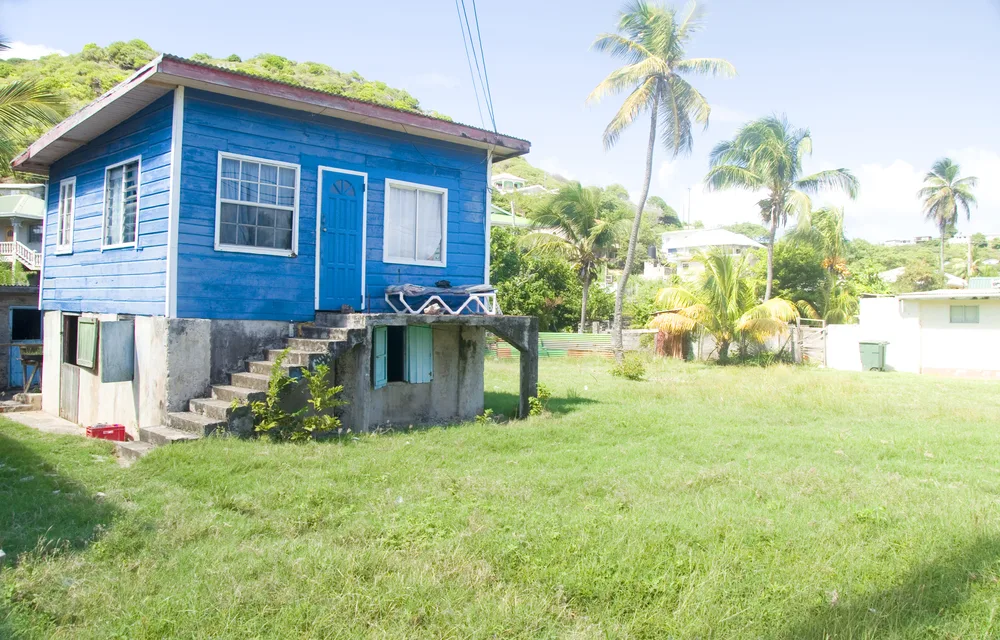
rj lerich/Shutterstock
There are a few areas on Saint Vincent where you should exercise some precautions. Certain parts of Kingstown, the capital, have higher rates of gang violence.
This includes the area around Paul’s Avenue, as well as the suburbs of Ottley Hill, Eden Boro, and Redemption Sharpes. Avoid walking in unfamiliar areas after dark.
Certain islands around Saint Vincent are becoming popular targets for yacht robberies. Be careful around the islands of Chateaubelair, Petit Saint Vincent, and Union Island. Ask locals about safe sailing locations.
Things to Consider
Here are a few additional safety tips for visiting Saint Vincent:
- Be careful when swimming. Certain swimming areas, such as Trinity Falls and Rawacou, have dangerous currents and tides. Never swim alone or in places where your swimming skills are not up to the task.
- Hiking and trekking are popular activities, but be careful when doing so. Don’t trek alone. Always go with a few other people or a trusted guide. Make sure that you have good travel insurance and that someone not on the trip always knows where you are. Police presence in most popular trekking areas is limited, so emergency services might be hard to access.
- Most taxi drivers don’t have meters. However, there are standardized tourism fares throughout the country. Always agree on a fare before you get into the car.
- Homosexuality is illegal. LGBT travelers should probably avoid the island or prepare to act stealthily while in the country.
Frequently Asked Questions
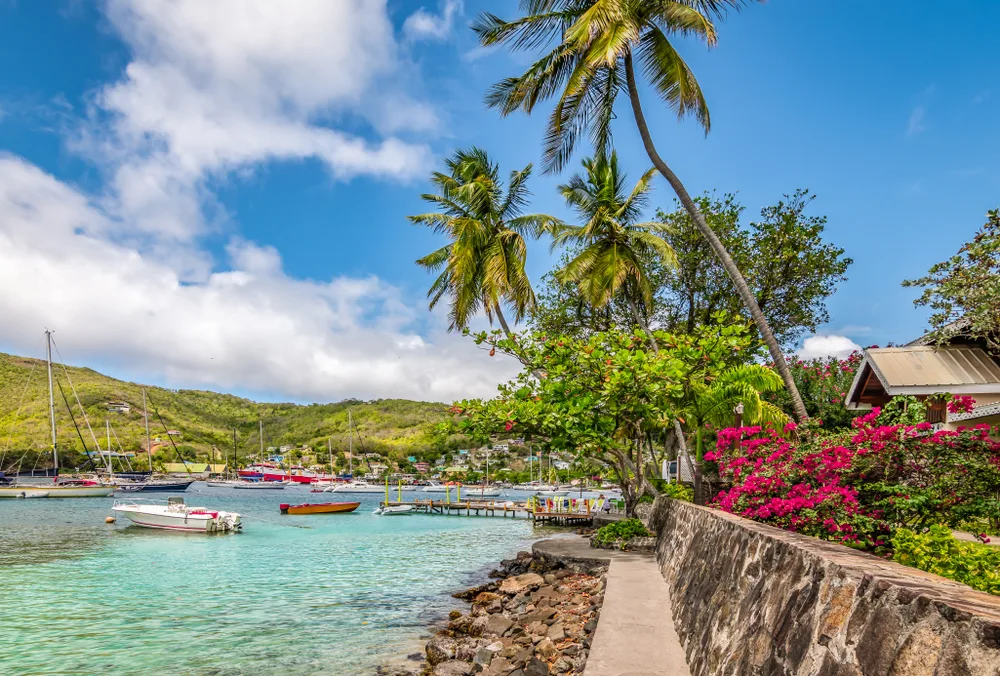
NAPA/Shutterstock
Here are a few other questions that you might want answered before visiting Saint Vincent:
What is the crime rate in Saint Vincent?
Saint Vincent has a high homicide rate of about 30.7 incidents per 100,000 people. However, the overall rate of crime is fairly low.
Is St. Vincent open to tourists?
Yes, St. Vincent is open to tourists again! It is now safe for all travelers to come back to the island. The island was shut down to visitors during the COVID-19 pandemic.
Is it safe to travel to Bequia?
Bequia is a small island near Saint Vincent. It has a lower rate of street crime than Saint Vincent as the population is lower. However, there have been thefts from yachts there before, so be careful if you are going there on a boating trip.
Is St. Vincent expensive to visit?
Saint Vincent is one of the more expensive Caribbean destinations, thanks to its popularity among luxury travelers. Even if you are not visiting on a luxury yacht, expect to spend a bit more on hotels and food than you would in other islands.
Is St. Vincent okay for kids?
St. Vincent is a great place to bring your kids because it is relatively safe. Plus, it is less crowded than many other Caribbean destinations so it will be less overwhelming for children.
Book Your Trip to Saint Vincent Today!
Saint Vincent is a safe destination to visit! Although it has problems with crime, most crime is concentrated in certain areas and rarely affects visitors. Just take precautions to protect your valuables, as you would anywhere.
So, with so much to see and do, and a very safe overall atmosphere, what are you waiting for — book your trip today to experience for yourself all that this tropical paradise has to offer. Happy travels!



